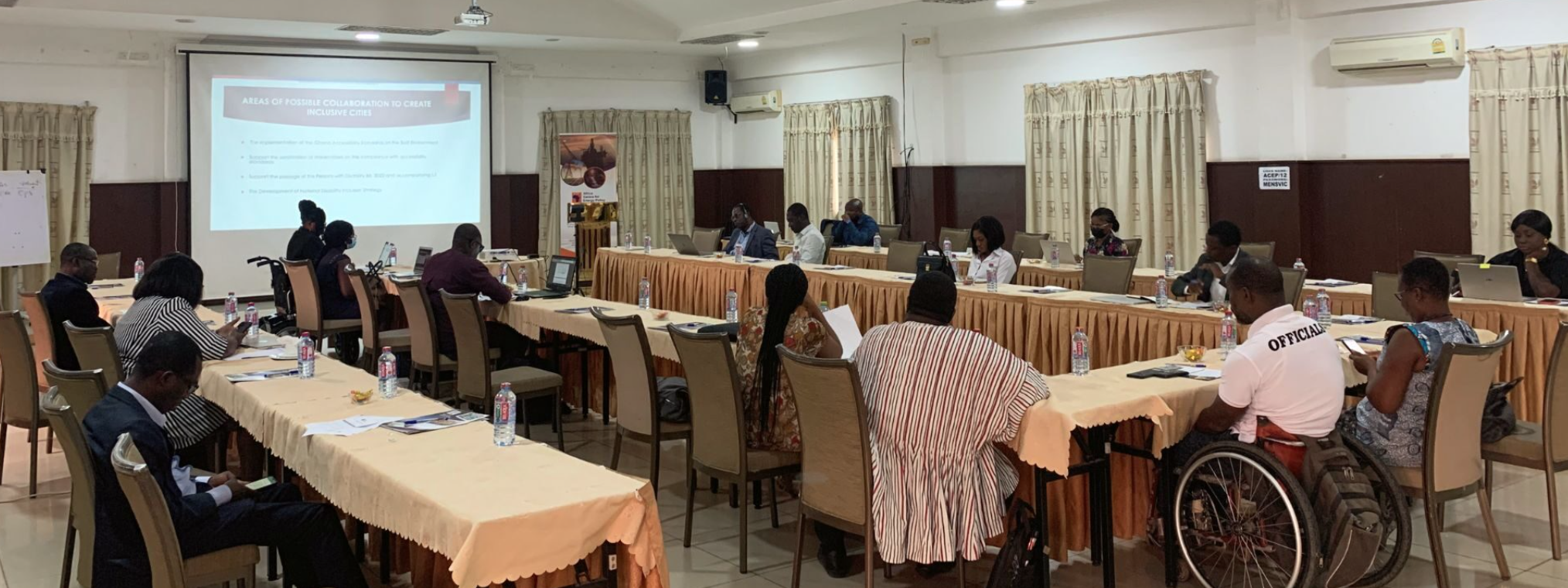

Ghana’s Petroleum Revenue Management Act (PRMA) stipulates the provision of social welfare and the protection of physically handicapped and disadvantaged citizens in the expenditure of petroleum revenues. However, an assessment of a number of petroleum revenue-funded projects across the country revealed their disability unfriendliness. Even where disability accommodations were made, they appear as after-thoughts because of their poor design and delivery.
On Tuesday, 30th August, 2022, the Africa Centre for Energy Policy (ACEP), in collaboration with Oxfam in Ghana, held a national dialogue on Compliance with Accessibility Standards in the Delivery of Oil-Funded Public Infrastructure in Ghana. Among the issues discussed were the regulatory and compliance challenges hindering the adoption of accessibility standards in delivering public infrastructure projects, exploring recommendations for compliance and promoting resource wealth for inclusive growth and development.

In a presentation on “Disability In(ex)clusion in the Delivery of Public Infrastructure in Ghana”, Mr. Alex Bankole Williams, an Assistive Technology Manager at the University of Ghana and the Chairman of the National Advocacy Committee, Ghana Federation of Disability Organisations, bemoaned accessibility challenges hindering the participation of persons with disability in mainstream societies. To him, when accessibility is removed, people with disabilities are excluded from social activities.
The laws of Ghana and the conventions the country ascribes to are clear on the need for opportunities to allow PWDs to go about societal activities with ease; however, these are not being enforced. One of these conventions is the Ghana Accessibility Standards developed by the Ghana Standards Authority in collaboration with PWD organizations to provide specifications for policymakers, implementers, and service providers to ensure quality and non-discriminatory services in the built environment in Ghana. According to Mr. Bankole Williams, contractors have used the lack of legislative instruments to excuse themselves from complying with the codes and laws. He stated that people with disabilities are not the only ones who benefit from the Ghana accessibility codes but that other groups of people, such as pregnant women, older people, children, and people carrying heavy loads, were also taken into account during the document’s creation.

The Executive Secretary of the National Council on Persons with Disabilities, Madam Esther Akua Gyamfi, stressed the need for policy implementers to ensure the accessibility of the physical environment such as roads, transportation systems, housing, schools, medical facilities, and workplaces, among others. She asked that information and communication technologies and systems be made accessible by providing sign languages & tactile interpretation services, braille, audio, electronic, and emergency services. Accessibility to these should not just be addressed in cities, as some people living in rural areas may have disabilities, Madam Esther Gyamfi added. She argues that Ghana will not be able to achieve sustainable development unless people with disabilities are included.
Representatives of the Ghana Standards Authority, Ghana Institutes of Architects, Ghana Institute of Engineering, Ghana Blind Union, and the Public Interest and Accountability Committee (PIAC) took turns answering questions at their organizations and contributing to the discussions on ensuring accessibility of petroleum revenue-funded infrastructure. In addition, the representatives pledged their commitments to ensure compliance with accessibility standards, which ACEP shall follow up.

Mr. Bankole Williams admonished the leadership of the professional bodies present to go beyond simply promising; they should walk the talk. To him, while PWD participation in mainstream societal activities is critical to the nation’s development, it can only be accomplished by ensuring accessibility.

